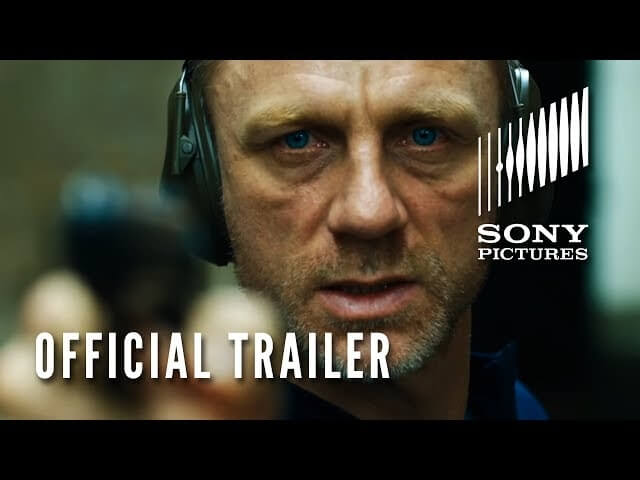How accurate were the Skyfall, Lincoln, and Life Of Pi trailers?

Reviewing movie trailers and picking them apart for clues has become one of the Internet’s favorite games. But how about after the movie comes out? Trailers Revisited holds trailers accountable for how accurately they represent the quality and content of the movies they advertise.
Trailer history: The stakes were high for Skyfall’s trailers, which needed to get moviegoers excited about a new James Bond film after a four-year break. It didn’t help that the last series entry, Quantum Of Solace, squelched some of the excitement created by Casino Royale, Daniel Craig’s first outing as the super-spy. The campaign did the job, creating “Best Bond ever?” Internet buzz that didn’t seem entirely based on hype, and leading to detailed analysis of its promotional material, with the final trailer (posted above), serving as the subject of at least one article that treated it with an attention to analytical detail that would do Judi Dench’s M proud.
How accurate is it? Quite. The trailer opens where the film begins, establishing Skyfall’s basic plot: Craig’s Bond is thought dead after a mission gone wrong, then returns to action when MI6’s home base—and M in particular—are targeted by a madman played by Javier Bardem.
How spoiler-y is it? Somewhat. The trailer essentially walks viewers up to about the film’s halfway point, plot-wise, then offers flashes of what’s to come.
Trailer clichés: It ends, as so many action trailers do, with mad flashes of action that grow more rapid and intense as it progresses, while the music swells to a pounding crescendo.
Truth in advertising grade: A-. Skyfall rightly received mostly rapturous reviews and won over fans new and old. This is a case of a strong trailer that, if anything, undersells the film.
Trailer history: The trailer for Steven Spielberg’s last-chapters Abraham Lincoln biopic was preceded by the release of images of star Daniel Day-Lewis in costume, which inspired a lot of commentary about how much he resembled the man he was playing. The trailer inspired more of the same, including a rave from Entertainment Weekly that went even further by stating, based on the trailer alone, “Day-Lewis instills a sadness and grace that remind us of the incredible weight on his shoulders.”
How accurate is it? The trailer effectively captures the film’s mournful, fragile mood. Though it offers glimpses of the film’s few action scenes, it emphasizes the same elements stressed by Spielberg’s film and Tony Kushner’s screenplay: fraught conversations in expressionistically illuminated rooms between men trying to pass or stall the passage of an amendment abolishing slavery as the American Civil War draws to a close.
How spoiler-y is it? Images of pleased Americans cheering the passage of the 13th Amendment sort of gives away the ending. Sort of.
Trailer clichés: It’s relatively cliché-free, unless there’s a version out there featuring “Solsbury Hill” we haven’t seen yet.
Truth in advertising grade: A. Like the man himself, it’s honest.
Trailer history: Yann Martel’s book Life Of Pi offers a high level of difficulty to anyone attempting to adapt it for the same reason any trailer attempting to sell it faces an uphill battle: Following an opening exploring several religions, the action largely takes place on a lifeboat carrying the eponymous protagonist and a tiger. Fortunately for the advertising team, the film also features a lot of stunningly beautiful imagery, and after establishing the film’s premise, the trailer opts to just let the jaw-dropping moments sell the film. Or, as ScreenRant put it in the site’s trailer review, “Viewers are bombarded with simply breath-taking imagery… soaring armadas of fish, massive whales caressing the ocean surface, and an island unspoiled by humanity.”
How accurate is it? It isn’t inaccurate. All that is in the movie, as is the framing device, also featured in the trailer, in which an adult Pi (Irrfan Khan) talks to a writer (Rafe Spall). But the film isn’t the nonstop uplift-fest suggested by the trailer’s rapturous, Coldplay-accompanied final minute.
How spoiler-y is it? Not nearly as spoiler-y as it could be, given where the film goes.
Trailer clichés: It’s an odd film, and tough to reduce to clichés, but any Coldplay song could easily become the “Solsbury Hill” of the early 2010s if overused.
Truth in advertising grade: B. The trailer doesn’t tell viewers precisely what they’re in for, but it does show them much of what they’re going to see.